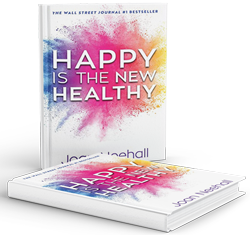Evidence based insights into well-being.
This edition delves into the empirical science of happiness: what contemporary psychology reveals about the determinants of well-being, and which interventions reliably enhance it. Happiness, as research increasingly suggest, is less a transient emotion than a psychological state cultivated through intentional habits, and cognitive frameworks
The architecture of happiness.
Positive psychology, formally introduced by martin Seligman in 1998, reframed the field from a focus on pathology to a focus on human flourishing. Happiness, often conceptualized as subjective well-being, consists of two major components, according to Diener, 1984
1. Affective well-being: the balance of positive over negative emotions.
2. Cognitive well-being: overall life satisfaction.
Longitudinal data.(for example the Harvard study of adult development, Waldinger and Schulz,2023) reve revealed that happiness is dynamic and can be systematically cultivated, despite a partial, genetic baseline
11. The determinants of happiness.
Meta-analytic findings(Lyubomirsky, Sheldon,Schkade,2005) suggest roughly:
- 50% of happiness variance is heritable.
- 10% is due to external circumstances, such as income, status, environment),
- 40% arises from intentional activities: cognitive and behavioral patterns, subject to deliberate change.
This 40% solution, underscores, a key insight: happiness emerges from what we do and how we think, not merely from what happens to us.
111. Empirically supported interventions.
1. Gratitude and cognitive reframing.
Gratitude, journaling, studied by Emmons and McCullough(2003), has demonstrated significant increases in well-being and reductions in depressive symptoms. Gratitude appears to shift attention out bias toward positive stimuli and reinforce adaptive attributional styles.
Application: record three specific events or interactions that elicited gratitude at the end of each day.
2. Flow and intrinsic motivation.
According to.csikszentmihalyi(1990) , the experience of flow: deep absorption in a challenging yet manageable task: correlates with both momentary happiness and long-term fulfillment.
Application: identify and schedule at least one weekly activity that induces complete engagement, independent of external rewards.
3. Social connection.
The Harvard longitudinal study _’s that quality relationships, predict both happiness and health outcomes more strongly than wealth or fame. Social bonds, buffer stress responses, and promote emotional regulation.(Holt-Lunstad et al,2010)
Application: engage in at least one pro, social behavior per day: expressive, gratitude, active, listening, or helping others.
4. Purpose and meaning.
Research, differentiate, hedonic well-being a pleasure oriented from your demonic well-being i.e. meaning oriented. Purpose, driven, living, predicts, more stable, enduring happiness.(Ryff,1989;Steger et al,2008)
Application: reflect on core personal values and align one daily action with them.
5. Embodied well-being.
Physical activity, sleep, and mindfulness have causal links with positive affect.(Frederickson,2001;Killingsworth and Gilbert,2010). Regula Regular exercise and restorative rest promote neurochemical conditions conducive to happiness, such as increased, endorphins, serotonin, and dopamine.
Application: M4 consistent exercise, 7 to 9 hours of sleep, and brief mindfulness sessions to stabilize affective states.
1V. Integrative perspective.
Happiness is not a static trait, but a learned psychological competence. It emerges from recursive feedback between cognition, behavior, and environment: a process segment encapsulated in the Perma model.(positive emotion, engagement, relationships, meaning, accomplishment.).
Cultivating happiness, thus entails designing daily routines, and mental frameworks that reinforce these five domains.
V. reflective practice.
Consider keeping a brief well-being log. Record daily:
- One act of kindness or connection.
- One source of meaning or mastery.
- One instance of gratitude.
After a week, review your notes and assess changes in mood and focus. Small, structured interventions can yield measurable, cognitive and emotional shifts within weeks.
Closing Thought
“Happiness depends upon ourselves “, Aristotle.
Happiness, when viewed through a scientific lens, is neither elusive nor mystical: it is trainable.


